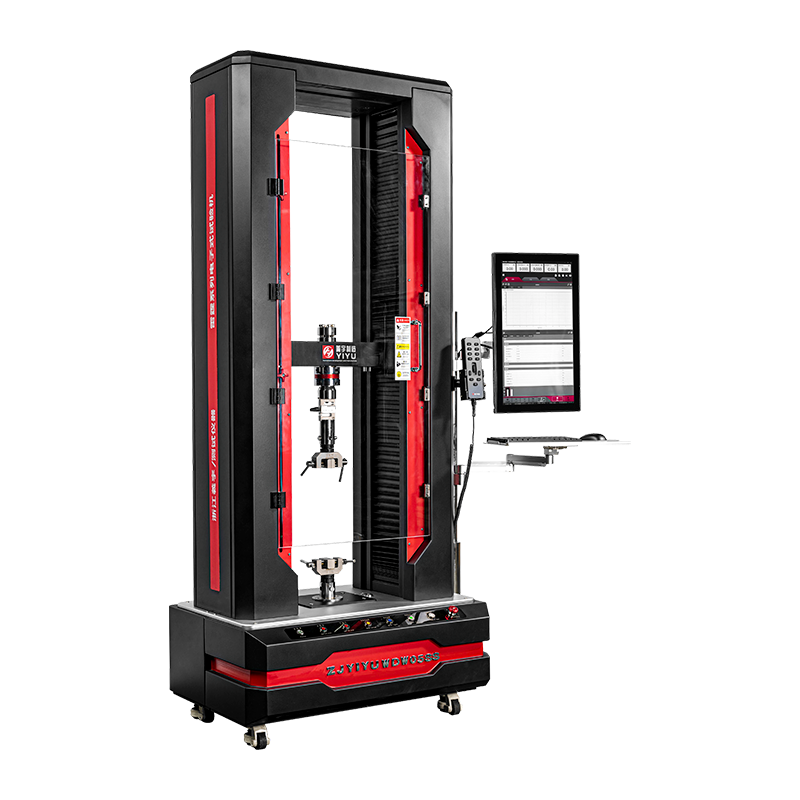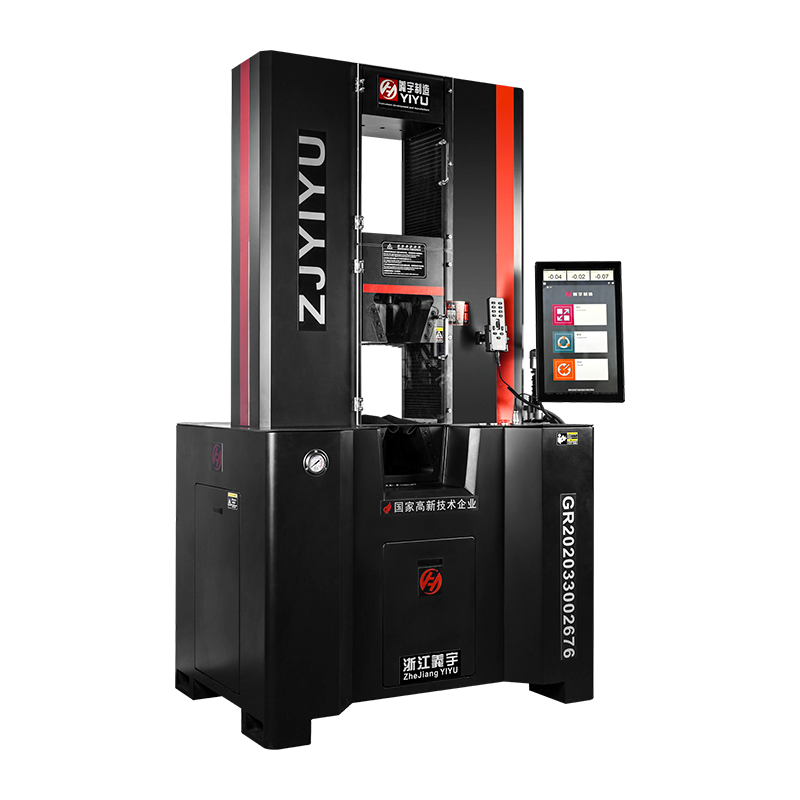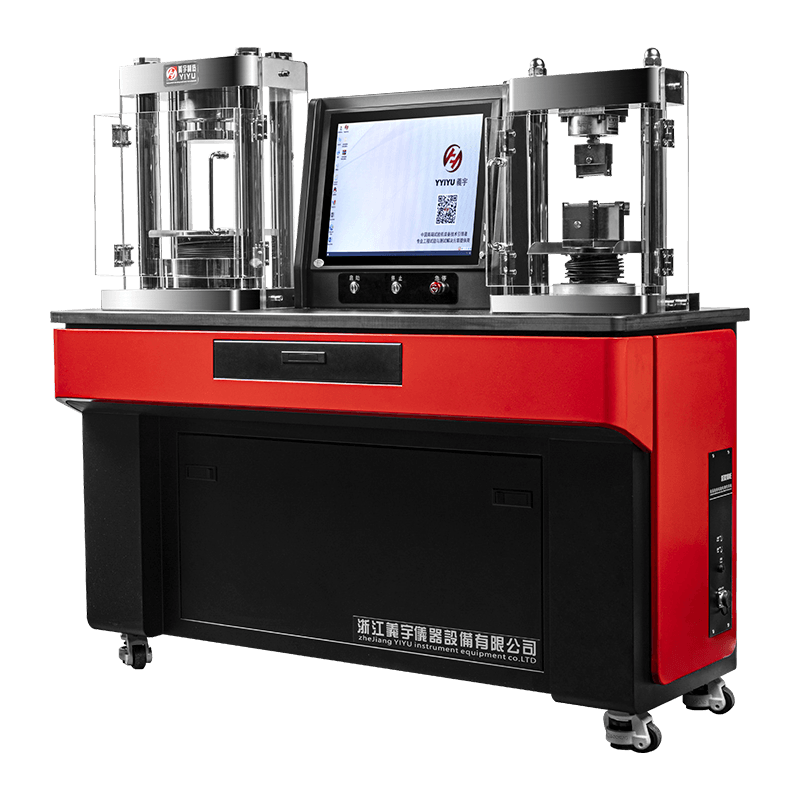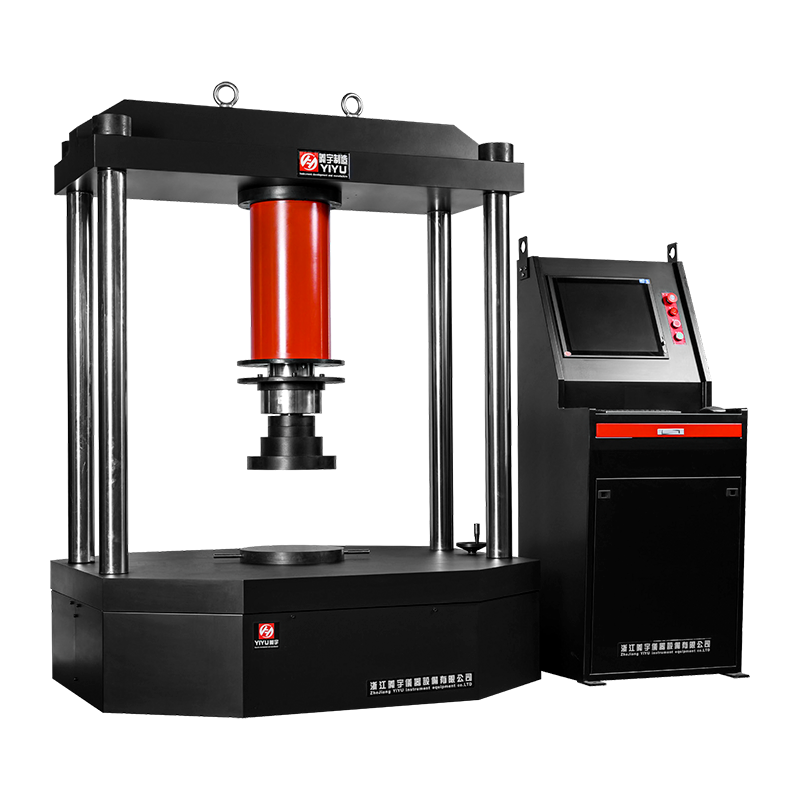With the continuous development of the construction industry, the quality control of building materials has become particularly important. The performance of building materials directly affects the safety, durability and comfort of building structures. Therefore, accurate material testing is particularly critical. Among the many testing equipment, the universal test machine, as a multifunctional material testing equipment, has become one of the core tools for testing material performance in the construction industry with its wide applicability and high precision.
Introduction to universal test machine
The universal test machine, also known as the universal material testing machine, is a device that can perform a variety of mechanical property tests. It can be widely used for tensile, compression, bending, shear and other tests on various materials such as metals, plastics, rubber, paper, textiles, composite materials, etc. By applying a certain force to the material and measuring its deformation, the physical properties and mechanical properties of the material under different conditions can be accurately evaluated.
In the construction industry, the universal test machine is mainly used to test the mechanical properties of building materials such as concrete, steel bars, mortar, bricks, etc. to ensure that they meet engineering standards and design requirements. By conducting precise mechanical tests on these building materials, it is possible to effectively prevent hidden dangers in project quality caused by material quality problems.
|
Project/Indicator/Model
|
WAW-100B
|
WAW-300B
|
WAW-600B
|
WAW-1000B
|
|
Maximum load
|
100kN
|
300kN
|
600kN
|
1000kN
|
|
Effective range
|
4%-100%F · S
|
|
Testing machine accuracy
|
Level 1
|
|
Structure
|
6 columns, jaws external cylinder, fully open jaws
|
|
Total motor power
|
AC 380V±10%,1.5kW
|
|
Relative error of the indication
|
±1%
|
|
Lower jaw lift speed
|
300mm/min
|
|
The maximum distance of the extruded space
|
650mm
|
650mm
|
680mm
|
700mm
|
|
Maximum clamping width of flat specimens
|
75mm
|
75mm
|
80mm
|
90mm
|
|
Flat specimen clamping thickness
|
0-15mm
|
0-15mm
|
0-20mm
|
0-40mm
|
|
Gripping diameter of the round specimen
|
Φ6-20mm
|
Φ10-28mm
|
φ13-36mm
|
φ14-40mm
|
|
The maximum distance between the fulcrums of the flexure test
|
300mm
|
300mm
|
300mm
|
300mm
|
|
Maximum stroke of the cylinder piston
|
200mm
|
200mm
|
200mm
|
200mm
|
|
Effective space between the two pillars
|
350mm
|
400mm
|
450mm
|
490mm
|
|
Control cabinet (LxWxH)
|
600x650x1400mm
|
|
Control cabinet weight kg
|
300
|
|
Main unit (length x width x height)
|
580x440x1700
|
630x460x1800
|
700x510x2000
|
780x540x2120
|
|
The net weight of the whole machine is kg
|
1100
|
1300
|
1600
|
2100
|
Application of universal test machine in building material testing
The universal test machine is widely used in building material testing, mainly including the following aspects:
Concrete strength test
Concrete is one of the most widely used building materials in construction projects, and its strength is a key indicator for evaluating concrete quality. The universal test machine can accurately test the compressive strength, tensile strength and other physical properties of concrete. By loading concrete specimens, the universal test machine can accurately measure the stress-strain relationship of concrete under different loading conditions, helping engineers evaluate the strength performance of concrete.
In construction projects, the compressive strength of concrete directly determines the bearing capacity of the building. By simulating different stress conditions, the universal test machine can provide data support for concrete mix optimization, construction process improvement, etc., thereby ensuring the safety and stability of the project.
Rebar performance test
Rebar is the main load-bearing material of concrete structure. Its strength, ductility, tensile strength and other properties are crucial to construction projects. Universal test machine can be used to test the mechanical properties of steel bars such as tensile and bending to ensure that the steel bars meet national standards and design requirements. Through these tests, engineers can understand the deformation, fracture and other characteristics of steel bars under different load conditions, thereby guiding the material selection and construction process in the actual construction process.
Especially in high-rise buildings or bridge projects, the quality and performance of steel bars are crucial. Universal test machine provides scientific and reliable test data for these projects to ensure the structural safety of buildings.
Mortar and masonry material testing
Mortar and masonry materials are common auxiliary materials in building structures, especially in wall and foundation construction. Universal test machine can be used to test the compressive strength, tensile strength and other properties of mortar to evaluate its applicability in construction. For masonry materials, universal test machine can test its compressive strength, shear strength and other indicators to help engineers choose suitable masonry materials.
Through these tests, the universal test machine can provide data support for the optimal selection of building materials and ensure the stability and durability of structures such as walls and foundations.
Brick and stone performance test
Bricks and stones are important materials for building exterior walls and decorations, and their strength and durability are also important guarantees for building quality. The universal test machine can test bricks and stones for compressive strength, flexural strength, etc. to evaluate their bearing capacity in actual projects.
For example, in the restoration of ancient buildings or the design of new building facades, the selection of bricks and stones is particularly important, and the universal test machine can ensure the stability and reliability of these materials when subjected to external forces.
Comprehensive performance test of other building materials
In addition to the above materials, the universal test machine can also test the performance of other building materials, such as insulation materials, thermal insulation materials, plastic pipes, etc. By performing multiple mechanical tests on these materials, engineers can ensure that they meet the design requirements and optimize the performance of building structures.
Contribution of universal test machine to the construction industry
The wide application of universal test machine in building material testing has greatly promoted the quality improvement of the construction industry, which is mainly reflected in the following aspects:
Improving the level of building quality control**
Through the universal test machine to conduct comprehensive and systematic performance testing of building materials, potential material problems can be effectively identified to prevent inferior materials from entering the construction site. Especially in important projects such as high-rise buildings and bridges, the quality of materials directly affects the safety and durability of the project. The application of universal test machine makes the quality control of building materials more accurate and reduces the risk of accidents caused by material quality problems.
Promote the research and development and innovation of building materials
The universal test machine is not only used for material quality testing, but also provides data support for the research and development of materials. By testing building materials with different proportions and different raw materials, R&D personnel can optimize the material formula according to the test results and develop new building materials with more performance advantages. For example, in the research and development of high-strength concrete and composite materials, the universal test machine provides an important basis for the performance analysis of materials.
Improve engineering construction efficiency
The precise testing of universal test machine can provide reliable material data for construction, enabling engineers to scientifically select and reasonably use building materials. By rationally selecting qualified building materials, the rework rate can be effectively reduced and the construction cycle can be shortened, thereby improving the construction efficiency of the entire project.
Promote standardization of the construction industry
The popularity of universal test machine has promoted the standardization process of material testing in the construction industry. Through unified testing standards and methods, the quality control of building materials has been standardized, and the overall level of the industry has been continuously improved. For construction companies, universal test machine provides them with scientific testing methods to help them better meet national and industry standards and enhance market competitiveness.






